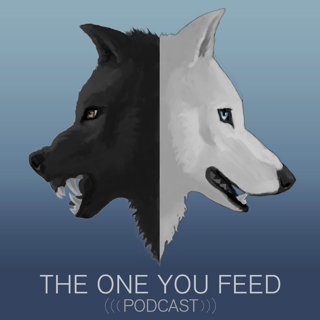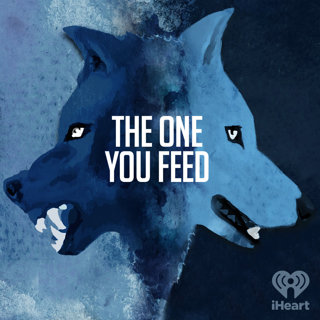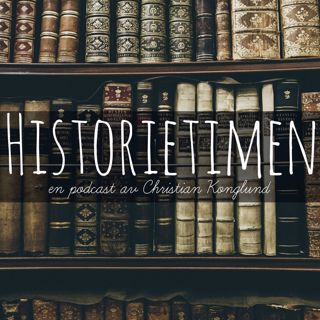
Parker J Palmer
Photo Credit: Dan Kowalski, Bainbridge Island, WA This week we talk to Parker J Palmer about finding wholeness Parker J. Palmer, is the founder and Senior Partner of the Center for Courage & Renewal. He is a world-renowned writer, speaker and activist who focuses on issues in education, community, leadership, spirituality and social change. He has reached millions worldwide through his nine books, including Let Your Life Speak, The Courage to Teach, A Hidden Wholeness, and Healing the Heart of Democracy. Parker holds a Ph.D. in sociology from the University of California at Berkeley, as well as eleven honorary doctorates, two Distinguished Achievement Awards from the National Educational Press Association, and an Award of Excellence from the Associated Church Press. In 2010, Palmer was given the William Rainey Harper Award whose previous recipients include Margaret Mead, Elie Wiesel, and Paolo Freire. In 2011, he was named an Utne Reader Visionary, one of “25 people who are changing your world.” Our Sponsor this Week is Casper Mattress Visit casper.com/feed and use the promo code “feed” to get $50 off!! In This Interview, Parker J Palmer and I Discuss... The One You Feed parable That wholeness is not about perfection but it's about embracing all that we are His book, Hidden Wholeness: A Journey Towards an Undivided Life What the idea of "the Soul" means to him His experiences with clinical depression and the lesson he's learned, a.k.a. "the pearl of great price" What "the divided life" is That we need BOTH community and solitude The voice of depression The important concept of, "If you can't be in community, watch out for being alone and if you can't be alone, watch out for being in community." The idea of "The Circle of Trust" That sometimes giving advice to someone is like giving CPR to people who can breathe for themselves & when we give them CPR, we're actually inhibiting their own capacity to breathe The importance of letting another person work their way to the answer themselves His book, Healing the Heart of Democracy What he has to say about the current state of politics That rather than looking at the right vs left division in politics, another view is to look at the people who think they can't do anything politically and have given up vs the activists That our founding fathers really got it wrong when defining who "we the people" are The important role that conflict brings to our form of government The Five Habits of the Heart that are important to healing the heart of democracy For more show notes visit our webpageSee omnystudio.com/listener for privacy information.See Privacy Policy at https://art19.com/privacy and California Privacy Notice at https://art19.com/privacy#do-not-sell-my-info.
5 Jul 201653min

A.H. Almaas
This week we talk to A.H. Almaas about spiritual awakening A. H. Almaas is the pen name of A. Hameed Ali, creator of the Diamond Approach to Self-Realization. The Diamond Approach is a contemporary teaching that developed within the context of both ancient spiritual teachings and modern depth psychology theories. Almaas has authored seventeen books about spiritual realization, including the Diamond Heart series, The Pearl Beyond Price, The Void, The Unfolding Now, and The Point of Existence. He founded the Ridhwan School, an inner work school devoted to the realization of True Nature. The orientation of the school is directed toward helping students become aware of and embody their “essence” or essential nature. His latest book is Runaway Realization: Living a Life of Ceaseless Discovery. In This Interview, A.H. Almaas and I Discuss... The One You Feed parable The different layers of consciousness The angelic and animal nature How the animal side is focused on our survival- the drive to survive Being is our fundamental essence Self Realization- when our Being and our identity becomes the same thing The primary method of The Diamond Approach- direct experience of being The process of inquiry Engaging in some practice that questions what we assume to know about ourselves How taking things at face value shortchanges ourselves of deeper knowledge How the separate sense of self is not an illusion, but it is only one of the ways to view reality For more show notes visit our website A grandfather is talking with his grandson and he says there are two wolves inside of us which are always at war with each other. One of them is a good wolf which represents things like kindness, bravery and love. The other is a bad wolf, which represents things like greed, hatred and fear. The grandson stops and thinks about it for a second then he looks up at his grandfather and says, “Grandfather, which one wins?” The grandfather quietly replies, the one you feed The Tale of Two Wolves is often attributed to the Cherokee indians but there seems to be no real proof of this. It has also been attributed to evangelical preacher Billy Graham and Irish Playwright George Bernard Shaw. It appears no one knows for sure but this does not diminish the power of the parable. This parable goes by many names including: The Tale of Two Wolves The Parable of the Two Wolves Two Wolves Which Wolf Do You Feed Which Wolf are You Feeding Which Wolf Will You Feed It also often features different animals, mainly two dogs.See omnystudio.com/listener for privacy information.See Privacy Policy at https://art19.com/privacy and California Privacy Notice at https://art19.com/privacy#do-not-sell-my-info.
29 Jun 201623min

Dr. Norman Rosenthal
This week we talk to Norman Rosenthal about transcendental meditation Dr. Norman Rosenthal is a world-renowned psychiatrist, public speaker and best-selling author who is known for his innovative research and inspirational writings. He is currently clinical professor of psychiatry at Georgetown University School of Medicine. He is most known for his discovery of Seasonal Affective Disorder. He is currently clinical professor of psychiatry at Georgetown University School of Medicine. His new book is Supermind: How to Boost Performance and Live a Richer and Happier Life Through Transcendental Meditation. In This Interview,Norman Rosenthal and I Discuss... The One You Feed parable Transcendental Meditation vs Mindfulness meditation His latest book, Supermind: How to boost performance and live a richer and happier life through Transcendental Meditation That whatever we practice, we succeed at Seasonal Affective Disorder: What it is and how he discovered it That you cannot become a master sailor in calm seas For more show notes visit our website Norman Rosenthal Links Homepage Twitter Facebook A grandfather is talking with his grandson and he says there are two wolves inside of us which are always at war with each other. One of them is a good wolf which represents things like kindness, bravery and love. The other is a bad wolf, which represents things like greed, hatred and fear. The grandson stops and thinks about it for a second then he looks up at his grandfather and says, “Grandfather, which one wins?” The grandfather quietly replies, the one you feed The Tale of Two Wolves is often attributed to the Cherokee indians but there seems to be no real proof of this. It has also been attributed to evangelical preacher Billy Graham and Irish Playwright George Bernard Shaw. It appears no one knows for sure but this does not diminish the power of the parable. This parable goes by many names including: The Tale of Two Wolves The Parable of the Two Wolves Two Wolves Which Wolf Do You Feed Which Wolf are You Feeding Which Wolf Will You Feed It also often features different animals, mainly two dogs.See omnystudio.com/listener for privacy information.See Privacy Policy at https://art19.com/privacy and California Privacy Notice at https://art19.com/privacy#do-not-sell-my-info.
22 Jun 201630min

Kira Asatryan
This week we talk to Kira Astrayan about overcoming loneliness Kira Asatryan is certified relationship coach, author, blogger, loneliness expert, and speaker. She loves to speak publicly on the topic of loneliness, as it's a problem of epidemic proportions in our modern times. She maintains a private coaching practice in San Francisco where she helps couples, and individuals develop closeness - the antidote to loneliness - in their relationships. She has struggled with loneliness her whole life and has come to find that there are many others out there like her. She has spent her coaching career researching, pondering, and reflecting upon what specifically makes relationships feel good or bad. In This Interview, Kira Asatryan and I Discuss... The One You Feed parable Her book, Stop Being Lonely; Three simple steps to developing close friendships and deep relationships The new type of loneliness in modern society How closeness means direct access to another person's inner world How knowing and caring are the two things that create closeness The importance of seeing others from their perspective and letting them see you from your perspective The role of being interested in and invested in another's well-being That instead of fostering closeness, that worrying about someone can sometimes push them away What it is about technology that can cause distance even when we're around other people That love is not a reliable solution to loneliness For more show notes visit our websiteSee omnystudio.com/listener for privacy information.See Privacy Policy at https://art19.com/privacy and California Privacy Notice at https://art19.com/privacy#do-not-sell-my-info.
15 Jun 201633min

John Prendergast
This week we talk to John Prendergast about tuning into our body John J. Prendergast, PhD, is a psychotherapist, retired professor of psychology, spiritual teacher, and founder and editor-in-chief of Undivided: The Online Journal of Nonduality and Psychology. He received my undergraduate degree from UC Santa Cruz and my M.A. and Ph.D. from the California Institute of Integral Studies. He is licensed as a Marriage and Family Therapist. His latest book is called In Touch: How to Tune into the Inner Guidance of Your Body and Trust Yourself In This Interview, John Prendergast and I Discuss: The One You Feed parable How important our body is What "knowing" is Learning to trust our deeper knowledge The difference between inner knowing and hunches based on fear Finding true knowing from ego desires The static in our system Observing thoughts as just thoughts For more show notes visit our websiteSee omnystudio.com/listener for privacy information.See Privacy Policy at https://art19.com/privacy and California Privacy Notice at https://art19.com/privacy#do-not-sell-my-info.
8 Jun 201649min

Russell Simmons
This week we talk to Russell Simmons about being a giver Russell Simmons is an American entrepreneur and author. He began his entrepreneurial career in his youth, but on the wrong side of the law, selling marijuana to make money while an active member of a local gang. He then partnered with Rick Rubin to create Def Jam Records, and signed artists like the Beastie Boys, LL Cool J, Public Enemy and Run-D.M.C. He is also The Chairman and CEO of Rush Communications, he cofounded the hip-hop music label Def Jam Recordings and created the clothing fashion lines Phat Farm, Argyleculture, and Tantris. He is also a vocal proponent of meditation and veganism. His latest book is called The Happy Vegan: A Guide to Living a Long, Healthy, and Successful Life In This Interview, Russell Simmons and I Discuss: The One You Feed parable How good givers are great getters Giving before you get Dissociating ourselves from the results of our labors How success and fame don't necessarily make us happy Improving our health through veganism Improving the health of the planet through veganism Corporate greed The horrors of factory farming His experience with Occupy Wall Street The corruption in politics His daily yoga practice Combining yoga, meditation, and veganism Remaining useful and active as we age For more show notes visit our websiteSee omnystudio.com/listener for privacy information.See Privacy Policy at https://art19.com/privacy and California Privacy Notice at https://art19.com/privacy#do-not-sell-my-info.
1 Jun 201627min

Benjamin Shalva
This week we talk to Benjamin Shalva about spiritual cross training Benjamin Shalva is a rabbi, writer, and yoga instructor, he leads spiritual cross-training seminars and workshops around the world. He received his rabbinical ordination from the Jewish Theological Seminary in New York City and his yoga teacher certification from the Yogic Physical Culture Academy in Los Cabos, Mexico. Shalva serves on the faculty of the Jewish Mindfulness Center of Washington and the 6th & I Historic Synagogue in Washington, DC, leads musical prayer services for Bet Mishpachah in Washington, DC, and spends his summers as the camp rabbi of Tamarack Camps in Michigan. His writings have been published in the Washington Post, Elephant Journal, and Spirituality & Health magazine. Born in Milwaukee, Wisconsin, he lives in Reston, Virginia, with his wife and their children. His new book is: Spiritual Cross-Training: Searching Through Silence, Stretch, and Song In This Interview, Benjamin Shalva and I Discuss: The One You Feed parable His book, Spiritual Cross-Training: Searching through Silence, Stretch & Song How he has been searching all of his life That spiritual work produces nothing tangible That spiritual growth is slow yet real & discernable in our lives Spiritual connection & growth, like friendship, is built through time, energy & attention What "spiritual cross-training" is His spiritual experience with the 3 modalities of silence, stretch & song How sticking to just one spiritual practice, over time becomes hobby The importance of "diving deep" into your chosen 2-3 spiritual practices How to deal with ego & ambition when it shows up in your spiritual practice How inviting the ego voice in his head to join him in his spiritual practice has been a useful tool in his life How what you resist, persists That, in the spiritual journey "...when we've exhausted all other options, we always have one weapon left in our arsenal....laughter"See omnystudio.com/listener for privacy information.See Privacy Policy at https://art19.com/privacy and California Privacy Notice at https://art19.com/privacy#do-not-sell-my-info.
24 Mai 201634min

Behavior Change Mistake #2
Get more information on The One You Feed Coaching Program. Enrollment open until May 25th The #2 Mistake Most People Make When Trying to Change Behavior: Dropping Old Behaviors Without Putting Something In Their Place Nature abhors a vacuum. Behaviors that have been done frequently enough that they have become habits are things that are now done mindlessly or effortlessly during our day. If at a certain time of day you do something and then all of the sudden you stop doing that thing, you are now left with a slice of time that was filled and is now empty. When faced with that empty space of time, it’s going to be really hard to resist doing the thing you’ve become habituated to do. So, put some other behavior in it’s place. In addition, a lot of our “negative” behavior patterns happen for a reason. There is something that they are doing for us (or did at one time). Removing them without some sort of substitute leaves a need unmet. For example, let’s say that everyday when you get home from work you have a snack. You’d like to stop having that snack because it’s close to dinner time and you don’t want the extra calories. Instead of coming home from work, sitting on the couch and doing nothing, resisting the urge to have something to eat, maybe you go for a 15 minute walk around your neighborhood instead. Get more information on The One You Feed Coaching Program. Enrollment open until May 25th The Tale of Two Wolves A grandfather is talking with his grandson and he says there are two wolves inside of us which are always at war with each other. One of them is a good wolf which represents things like kindness, bravery and love. The other is a bad wolf, which represents things like greed, hatred and fear. The grandson stops and thinks about it for a second then he looks up at his grandfather and says, “Grandfather, which one wins?” The grandfather quietly replies, the one you feed The Tale of Two Wolves is often attributed to the Cherokee indians but there seems to be no real proof of this. It has also been attributed to evangelical preacher Billy Graham and Irish Playwright George Bernard Shaw. It appears no one knows for sure but this does not diminish the power of the parable.See omnystudio.com/listener for privacy information.See Privacy Policy at https://art19.com/privacy and California Privacy Notice at https://art19.com/privacy#do-not-sell-my-info.
21 Mai 20165min






















